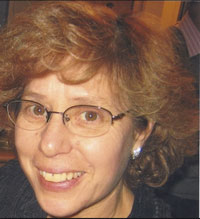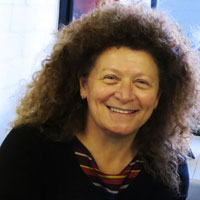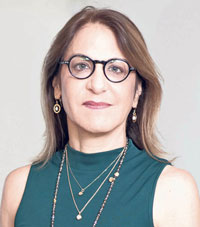Colloquium Committee
Dear All,
In the past year we, as colloquium co-chairs, have found ourselves in a precarious position.
Our colloquia have always been planned, and still are, with the intention of initiating professional discussions that deal with psychoanalytic thought, concepts, and technique, at times classical, at times contemporary. Parallel to our colloquia listserv is the collective listserv, intended for discussing the psycho-political aspect of our lives. This listserv was originally created by Eyal Rozmarin (USA) and Victor Donas (Chile), and is today moderated by Mitchel Becker (Israel). Whereas the colloquia listserv is rigorously moderated with a determined time frame and all posts must relate to the subject matter chosen for the specific colloquium, the collective listserv is always open, any socio-political subject may be broached, and the moderation is lighter.
In the past year, due to global turmoil, we felt that carrying on our colloquia as usual seemed to border on dissociation. On the other hand, almost every organizational listserv has “blown up,” unable to contain the extreme emotions evoked by discussions touching upon contemporary conflicts. What seemed necessary was some hybrid model of the colloquia and collective joined together. The subject matter of the collective begged discussion in ways that could be contained.
So we decided to give it a go. Taking Freud’s “Why War?” as a springboard for discussion, with an incredible, diverse panel that included Uri Hadar (Israel) Eyal Rozmarin (USA), Alexander Levchuk (Russia), Sally Swartz (South Africa), Shafiq Masalha (Israel-Palestine), Afarin Kohan (Canada), Steve Kuchuck (USA), and Taras Levin (Ukraine), we began a discussion about personal and psychoanalytic perspectives regarding conflict. We asked our membership to refrain from inflammatory speech and references to specific political positions and conflicts. Mostly, the results of this project were impressive, because from amongst the many possible pitfalls, a dialogue emerged. The tone was respectful, personal, serious and sensitive, bordering sometimes on the mournful. Of course, many things could not be stated and were probably not achieved in this past colloquium. We know some have been unhappy with our restrictions, and we send heartfelt gratitude to all who were willing to rephrase posts at our request and to accept our guidelines.
But we felt that in such horrific, violent times, creating a relatively safe space where a modicum of thought and dialogue could be maintained was not a small achievement. Heartened by this, we have decided to have an additional round in this experiment. Sue Grand (USA) has graciously accepted our invitation to be our featured author in the upcoming November colloquium.

Sue Grand
Our group of engaged, brave panelists will be Jill Salberg (USA), Sandra Buechler (USA), Dan Shaw (USA), Victor Donas (Chile), Chana Ulman (Israel), Thembelihle Dube (South Africa), Rajan Gupta (New Zealand), and Brendan McPhillips (Australia). We will be discussing Sue’s (2023) paper, “On Hatred: Perpetrator Fragments and Totalitarian Objects,” Psychoanalytic Dialogues, 33:4, 543-560. We believe this paper is an ideal sequel to our most recent colloquium, grappling as it does with ‘hatred’ and its determinants and effects. We believe the article will find great resonance and challenge in the IARPP membership – as it did for both of us when we read it, and it will perhaps encourage us all to deal with, spell out, and articulate our violent impulses. Again, in our rigorously moderated frame.
We look forward to meeting many of you in discussing this timely, sadly relevant topic, hoping to maintain our community’s bonds as the world continues its wild spirals.
Cathy Hicks (Australia) and Shlomit Gadot (Israel)
Colloquium Committee Co-Chairs

Cathy Hicks, Ph.D.
Sydney, Australia
Email Cathy Hicks

Shlomit Gadot, Ph.D.
Ramat Hasharon, Israel
Email Shlomit Gadot

